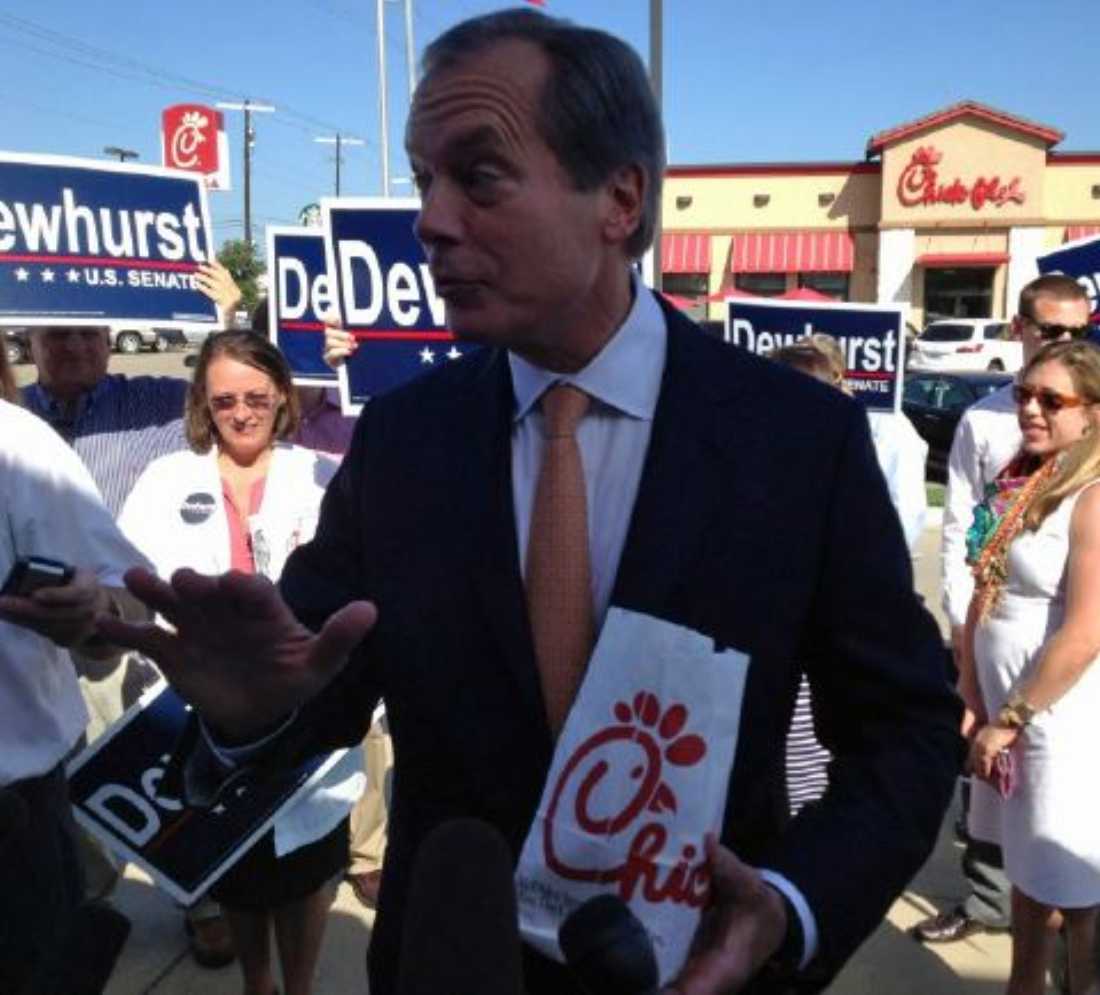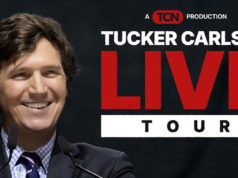As the state’s tight Senate race drew to a close Tuesday, Lieutenant Gov. David Dewhurst carefully chose the place of his last-ditch election gimmick to beat back upstart Tea Party-favorite Ted Cruz.
That or he was really craving a chicken sandwich.
Yes, Dewhurst chose conservative cause célèbre Chick-Fil-A as the final endorsement of his right-wing credentials. An Austin location of the fast-food chain famous for its semi-illiterate bovine graffiti artists became Dewhurst’s last campaign stop after the company president said last week that he didn’t support gay marriage, only the “biblical definition of the family unit.”
Dewhurst, desperate to distinguish himself from a dynamic challenger whose politics are virtually identical to his own, managed to turn the absurd politicizing of a company that sells chicken sandwiches into an attack on rugged Texan individualism. “In Texas, we don’t try and be politically correct,” he said at the restaurant. “We’re encouraging people to come to Texas and invest, create jobs, and live their dreams.”
Thank goodness Dewhurst came to Chick-Fil-A’s defense and saved those fast-food jobs! He’s not the only one. After a couple of liberal mayors criticized the company –– Washington, D.C., Mayor Vincent Gray called the food “hate chicken” in a Tweet (no joke) –– Sarah Palin and Rick Santorum also scored some free political points with quick photo ops holding up food bags.
Win or lose, at least Dewhurst will have his gay-free chicken to enjoy.
Testing the TAKS
You know all those standardized tests? The ones used to fire teachers who are presumably not pulling their weight and penalizing schools with consistently low scores?
Well –– surprise, surprise –– they might just be a load of bunk.
The Texas Assessment of Knowledge and Skills (TAKS) tests, according to studies by a University of Texas-Austin professor, have a design flaw that may make measuring the effects of classroom instruction “virtually useless,” the Texas Tribune reported.
The state pays testing company Pearson nearly half a billion dollars to create the tests through 2015, but the study has implications for the whole country, which for a number of reasons tends to follow the lead of the Texas education system.
Texas’ standardized tests have been controversial for years, so the study will probably not shock too many school districts, which have in recent months all but revolted against the high-stakes test, passing resolutions that say the tests are “strangling” public schools.
Professor Walter Stroup presented the findings at a House committee hearing in June.
The Texas Education Agency denied such a major problem, but there are signs the House committee may take a closer look at the issue.
Static says: Start crammin’.













Jeebus chicken. Hmmm.